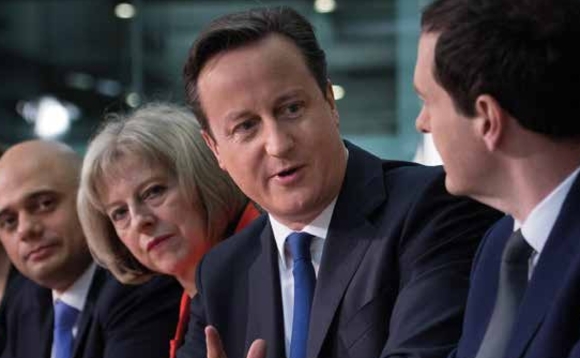
Does the election spell good news for private equity?

After a surprisingly smooth general election, Alice Murray assesses whether or not the new majority is all that good for private equity
Unsurprisingly, the UK private equity industry seems broadly pleased with May's general election result. Many high-profile industry participants have expressed their relief over the majority win for the Conservative party – as many expected a hung parliament and weeks of negotiations before the final government was put in place. Fortunately the clear result, along with the Conservatives' business-friendly approach, has meant the industry can get back to deal-doing in a more stable political environment.
According to unquote" data, dealflow across the board (early-stage, expansion and buyout deals) witnessed a decline leading up to the election. In 2014, the March-June period saw deal volume hold steady – with around 50 transactions recorded each month. While 2015 started off strongly with 44 deals, this figure gradually eroded to 38 in February, 33 in March and just 28 in April.
The unexpected result of the election – a majority government – should drive an uptick in UK dealflow over the coming months. Furthermore, a recent report by law firm Mills & Reeve (which surveyed 500 heads of medium-sized businesses), found that a third of UK mid-market businesses are seeking a sale, and half of these intend to do so within the next two years.
While this is certainly good news for those seeking to deploy cash in the near-term, competition is clearly heating up, with 55% of the survey's respondents having experienced an increase in investor interest.
Dark clouds looming
However, while the UK economy returns to business as usual, one nasty side effect of May's result is the upcoming referendum on the UK's European Union membership. If last year's Scottish referendum is anything to go by, we're in for another round of that dreaded uncertainty as the campaigns heat up.
This is not the only cloud looming on the horizon for the industry. The Conservatives' commitment to reducing the deficit will see tax increases and further austerity measures. VAT and National Insurance have been fixed, which is good news for GPs, especially those with consumer sector exposure. The UK will also retain its 20% corporation tax rate – ensuring the country's continued competitiveness against its G20 counterparts.
But the new government will need to raise significant sums of cash to keep plugging the deficit and some expected rises could hit private equity in more sensitive areas. One tax regime that has not been protected is capital gains tax (CGT). Looking back over the recent history of this tax, it has bounced around from 18% prior to 2008 to 28% in 2010, highlighting its tendency to be tweaked when the Exchequer is hunting for easy gains.
While many are speculating as to how CGT might be raised – whether it is the headline rate that is increased or if reliefs are reduced – one short-term measure that would boost tax receipts would be to align CGT with income tax. In terms of reducing reliefs, it would seem that entrepreneurs' relief is most vulnerable at this point.
The entrepreneurs' relief is at greatest risk of being targeted because it is currently viewed as extremely generous and, more importantly, it would be an easy change to simply reduce the lifetime allowance.
It is important to note that in 2012/13, CGT raised only £3.8bn for the Exchequer, a far cry from the record £7.7bn generated in 2007/08. Furthermore, the amount on which individuals have claimed entrepreneurs' relief has doubled since 2009/10.
With changes already put in place to entrepreneurs' relief in the March 2015 budget, whereby the option of pooling management teams' stakes in businesses through a feeder company has been removed – meaning shareholding through a joint venture is no longer seen as holding a qualifying stake in a company – there is further weight to the argument that this tax is likely to be raised once more. The impact of the most recent changes to entrepreneurs' relief has caused an almost immediate trebling of CGT for managers engaged in these joint venture shareholding structures.
Chancellor George Osborne is expected to deliver his second budget of 2015 relatively soon, so the industry will undoubtedly be awaiting any changes to CGT with bated breath.
Latest News
Stonehage Fleming raises USD 130m for largest fund to date, eyes 2024 programme
Multi-family office has seen strong appetite, with investor base growing since 2016 to more than 90 family offices, Meiping Yap told Unquote
Permira to take Ergomed private for GBP 703m
Sponsor deploys Permira VIII to ride new wave of take-privates; Blackstone commits GBP 200m in financing for UK-based CRO
Partners Group to release IMs for Civica sale in mid-September
Sponsor acquired the public software group in July 2017 via the same-year vintage Partners Group Global Value 2017
Change of mind: Sponsors take to de-listing their own assets
EQT and Cinven seen as bellweather for funds to reassess options for listed assets trading underwater








